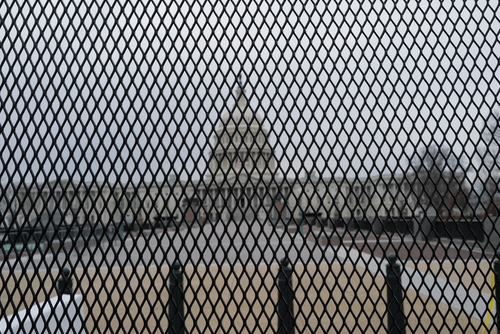
U.S. Sen. Gary Peters (D-MI), chairman of the Senate Homeland Security and Governmental Affairs Committee, this week released the results of an investigation into the rise of domestic terrorism and federal actions against it – and alleged that it has come up short.
Specifically, he pointed to the Department of Homeland Security (DHS) and the Federal Bureau of Investigation (FBI), accusing them of failing to effectively track and report data on domestic terrorism and the threats it posed, despite the Terrorism Reporting and Classifying (TRAC) Act of 2019 that required this. The report concluded that this led to a lack of data for Congress, ultimately hampering its ability to determine if counterterrorism agencies are allocating the appropriate resources to address that homegrown threat.
“From the horrific shooting at the Tree of Life synagogue to the tragic January 6th attack on the Capitol to the deadly shooting targeting the African American community in Buffalo, and too many other attacks – we have seen firsthand how violence inspired by white supremacist and anti-government extremists terrorizes communities across the nation,” Peters said. “DHS and FBI’s inability to provide comprehensive data on the domestic terrorist threat creates serious concerns that they are not effectively prioritizing our counterterrorism resources to address the rising domestic terrorist threat.”
Domestic terrorism in recent years has included a growth in white supremacism and anti-government violence. Some independent experts and national security officials have labeled these threats, particularly the most significant terrorist forces facing the United States today. Social media companies have also been accused of participating in this growth due to their focus on engagement, a lack of safety features, and in some cases, active amplification of extremist content.
Although ex-President Donald Trump was notably banned from many social media outlets following the Jan. 6 insurrection, many accused of promoting extremist content have evaded punishment or restriction. Peters’ investigation pointed to social media companies’ current incentive structures as complicit in this, focused as they are on generating revenues and engagement.
The senator’s report also made several recommendations for how to fix the current state of affairs. Among these were calls to reassess the federal government’s counterterrorism efforts, require the DHS and FBI to comply with data reporting requirements for counterterrorism assessment, improve federal agency guidelines on social media use and push social media companies to prioritize safety on their platforms, especially by emphasizing trust and safety as prioritized metrics for them.
The report added that social media played a role in radicalizing those involved in more than 90 percent of extremist plots or activities in the United States in 2016.




